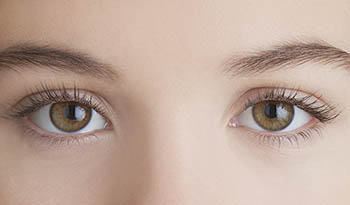비전 탐구
면책사항:이 블로그는 진단을 제공하기 위한 것이 아닙니다.

5 key nutrients needed to prevent and treat cataracts and senile deterioration
Nutrition is a key role in the prevention and treatment of cataracts and senile degeneration. Eating colorful fruits and vegetables and appropriate supplements can help reduce the risk of cataracts and aging loss.
Lutein and Zeaxanthin
Lutein and Zeaxanthin : Studies have shown that taking lutein and zeaxanthin supplements not only prevents senile deterioration, but also helps improve vision in people who have already suffered aging. Patients with senile macular degeneration received 10-15 mg lutein daily and improved glare, contrast sensitivity and visual acuity compared to the group fed placebo (placebo).
Lutein prevents cataracts and is also important for improving vision in people who already have cataracts. Like the macula, the human lens concentrates lutein and zeaxanthin. In fact, there are only two carotenes found in the human lens. There are three large studies that have shown that taking lutein is inversely related to the risk of cataract surgery.
Flavonoid-rich extract
Flavonoid-rich extracts: Flavonoid-rich blueberries , pine bark and grape seed extracts are also valuable for eye health. These extracts not only have excellent antioxidant effects, but also improve retinal blood flow and vision, especially night vision. Take 150-300 mg of one of these extracts a day to take care of your eye health.
Antioxidant nutritional supplement
Antioxidant supplements such as beta carotene , vitamin C , vitamin E , zinc , copper , and selenium are also important for eye health. According to age-related eye disease research, these nutrients are better to eat together than to eat only one. However, eating just one vitamin C or zinc can have a very good effect. There is a study showing that the incidence of cataracts in women who have taken vitamin C for 10 years is 77% lower than in women who have not taken vitamin C.
Zinc plays an important role in retinal metabolism and vision. A two-year study of 151 people found that the loss of vision in the zinc- fed group was significantly less than in the placebo-treated group.
CoQ10 and acetyl -L- carnitine (Acetyl-L-Carnitine)
One double-blind study showed that eating 200 mg of acetyl-L-carnitine , omega-3 fatty acids (460 mg EPA and 320 mg DHA), and 20 mg of CoQ10 improved vision and suppressed macular changes in patients with early aging decline . The group who took these supplements stopped progressing in 47 of 48 cases.
Fish oil
Atherosclerosis and eye health are closely related. Therefore , omega-3 fatty acids in fish oil, which are good for atherosclerosis, play an important role in preventing senile deterioration and other eye functions. It is good to take 1,000 mg of EPA and DHA.
Nutrients for the Eyes
Foods rich in carotene, lycopene, zeaxanthin, lutein are bell pepper, blush, collard, kale, papaya, spinach, sweet potatoes, tomatoes.

 By 마이클 머래이(Michael Murray) 자연요법 의사
By 마이클 머래이(Michael Murray) 자연요법 의사 


